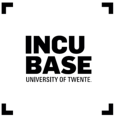As a graduate of the Master’s in Mechanical Engineering with a specialisation in Personalised Health Technology, you can look forward to great career opportunities, both in the health sector and other industries. You might pursue a career as a product developer, R&D engineer, consultant or project manager, to name some examples. You can also opt to further develop yourself by following a PhD- or EngD programme. Or what about starting up your own business?
Type of degree
When you have completed this Master’s with the specialisation in Personalised Health Technology, you will receive a Master’s degree in Mechanical Engineering. Also, you can title yourself Master of Science (MSc) or use the Dutch title Ingenieur (Ir.). Your specialisation will be mentioned specifically on your diploma supplement, highlighting your specialised knowledge and skills in the field of personalised health technology.
Job opportunities
Thanks to advances in technology, an ageing population, and an increasing focus on preventative care, the medical device industry is rapidly growing. As a mechanical engineer specialised in personalised health technology, you will be in great demand as your expertise will be of great value in research & development departments of all types of medical device companies. But more than that, thanks to your strong foundation in mechanical engineering, you will still be equipped to enter many other sectors as well, from the energy to the transportation sector to even the food industry.
In your future career, you might join the research & development department of medical device companies like Philips, Demcon, and Siemens, but also smaller enterprises like FluxRobotics or IAmfluidics. There, you could fulfil the role of R&D engineer, production engineer, innovation engineer, product manager, quality manager or test engineer, to name just some of your many options. Or you might work for a notified body as a technical expert, focusing on the approval of medical devices, or work as a consultant and advise organisations on getting approval, setting up quality management, et cetera. Or what about a career within a research institute? Whichever career path you choose: your ability to look beyond the perspective of a mechanical engineer and work together with people from other disciplines make you a much sought-after expert in all kinds of sectors.
Maintenance is an important aspect in nearly any industry, so your career opportunities stretch far, from manufacturing, transport, and energy to even the food industry or the IT sector. Companies you could work for include VDL, Prorail, Strukton, KLM, Vattenfall, Alliander, Damen shipyards, Apollo Vredestein, Redefine Meat, Grolsch, and the list goes on. Other than working directly in the industry, you can also pursue a career at consultancy companies like Arcadis or Movares, or focus on a more research-oriented career within research institutes or universities, like the University of Twente!
Start a business
At UT, we highly encourage entrepreneurship. This University is the birthplace of a large number of high-tech spin-off companies that market developed technologies. You could use your research or even inventions stemming from your master’s thesis and/or your PhD research to start up your own innovative company as well! UT has been voted the most entrepreneurial university in the Netherlands four times in a row. We have a unique approach of putting scientific knowledge to practical use and turning our expertise and yours into solutions that people and society actually need. As a catalyst for meaningful entrepreneurship, we offer you the Novel-T foundation and their start-up hub Incubase on campus.
Companies launched at UT
Did you know that the engineering firm Demcon was once started-up by graduates of Mechanical Engineering at the University of Twente? Just like EAZ wind, a start-up that designs and develops windmills and other sustainable energy packages for farms. Other examples of start-ups by ME-graduates include simulation software companies Aniform (focused on the forming processes of composite materials) and Triboform (focused on tribology, friction, and lubrication in metal-forming processes). Will you be next to start up your own company?
Post-master opportunities
Instead of pursuing a professional career right away after obtaining your Master’s degree, you can also opt for a more academically oriented career, by pursuing a PhD or EngD. An EngD programme is more practically oriented, aligned with the direct problem-solving or design needs of the industry, whereas a PhD programme is more focused on research. You can follow both types of programmes at the Twente Graduate School (TGS).
CONTINUE AS A RESEARCHER: OBTAIN A PHD
A PhD (Doctor of Philosophy) involves spending four years of in-depth studying and researching in a particular area. You can do this within one of our research groups or in one of our structured PhD programmes. An integral part of a PhD is writing your PhD thesis at the end and then presenting and defending your research in public. Obtaining your PhD earns you the title of Doctor (Dr).
FOLLOW AN ENGD PROGRAMME
Other than obtaining a PhD, you can also opt to follow an EngD programme after graduation. Such a programme usually takes two years and is aimed at you becoming a high-level technological designer. Upon successful completion, you will receive a certified diploma and the academic degree Engineering Doctorate (EngD).

